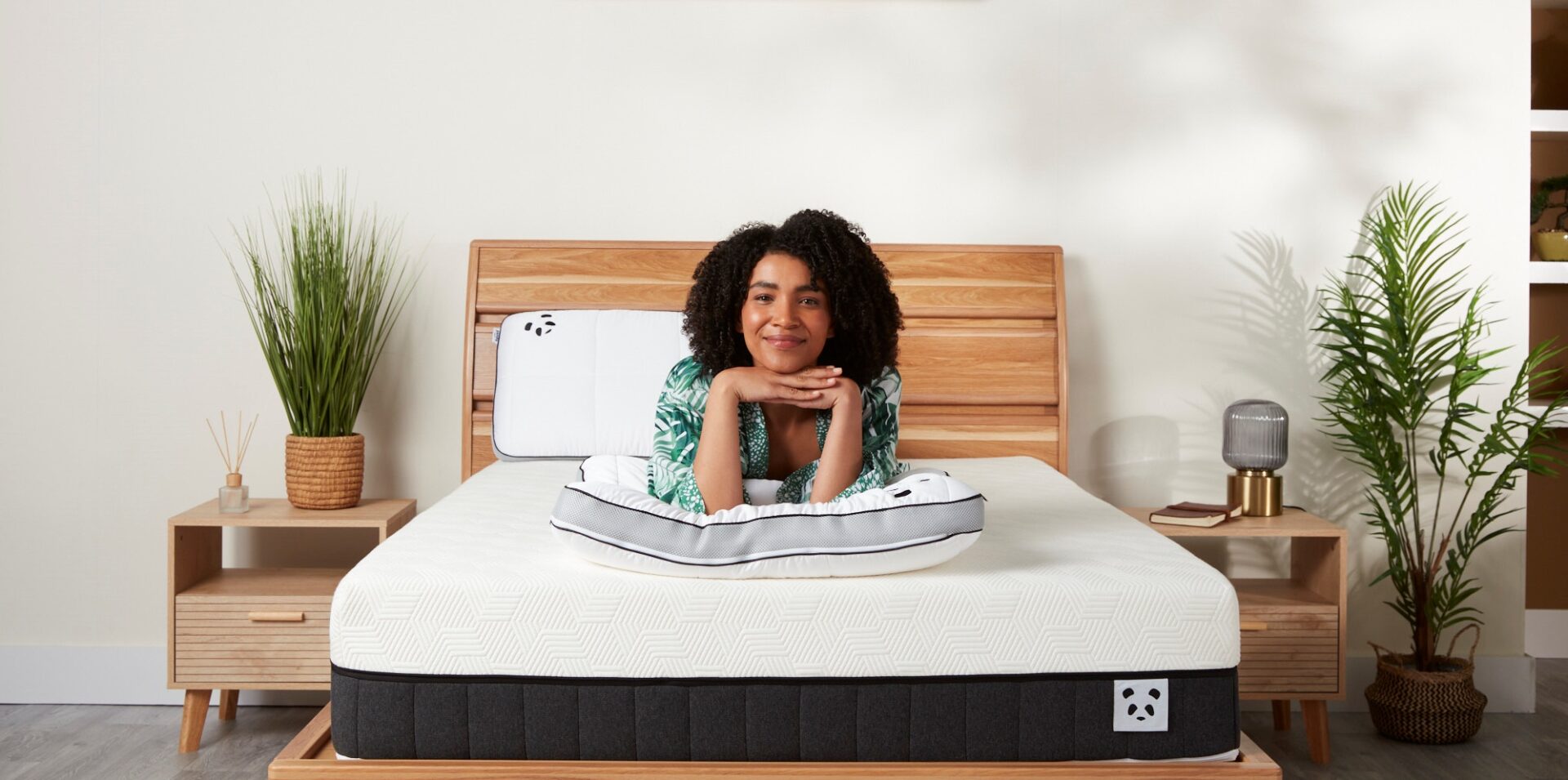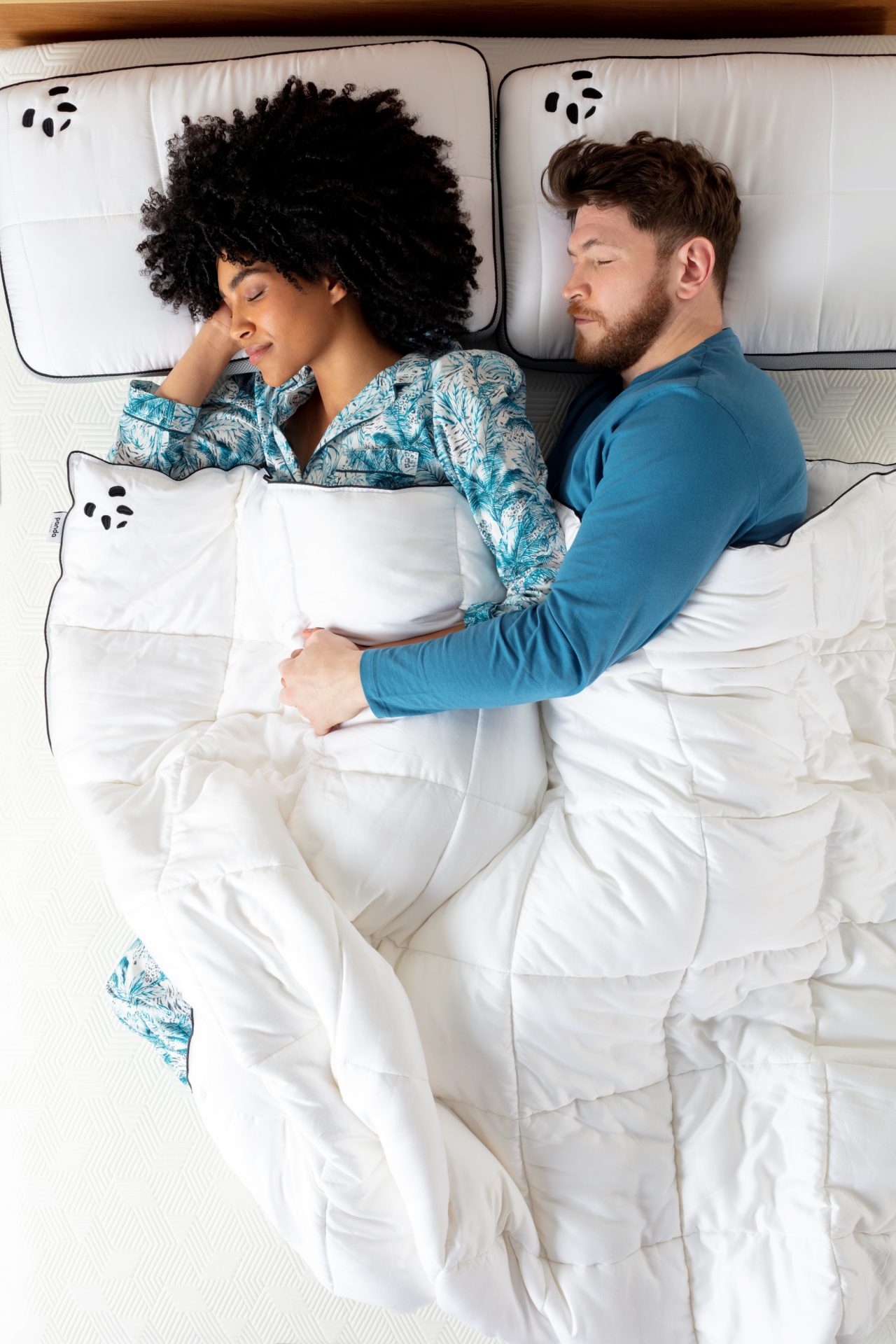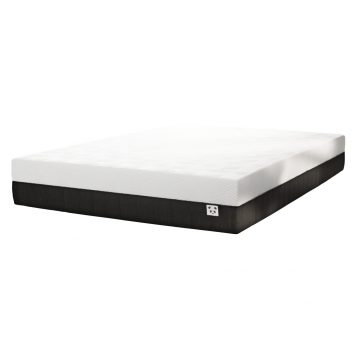How Sleep Deprivation Affects Your Health and Ways to Cure it
Last updated on August 16th, 2023 at 12:38 pm
Sleep deprivation is a condition that occurs from not getting enough quality sleep. This has risen recently, with over 7.5 million people averaging less than five hours a night. Sleep is an essential pillar of good health and well-being, so not getting enough is not sustainable. If you are experiencing this, you are in the right place. Read on to discover the causes and effects of sleep deprivation and, most importantly, the ways you can improve it.
What causes sleep deprivation?
The condition can be caused by a range of different factors, here are some of the most common culprits that could be zapping your sleep. Identifying the primary cause of sleep deprivation is the first step towards getting bedtime back on track.
Lifestyle choices
While we may all naturally be night owls or early birds, not getting a solid recommended 7-9 hours of sleep a night can affect us all. If you choose to stay up late and still get up early, over time, you will develop an unhealthy sleep routine that is not sustainable. Whether it’s overworking, eating too late or one too many episodes of Netflix keeping you up past bedtime, your lifestyle choices can be getting in the way of the duration and quality of your kip. What you do in those last two hours before hitting the hay can greatly impact how deeply you sleep; this is something to become aware of.

Sleep hygiene
Sleep hygiene can be a broad topic, though it covers the habits that can affect our sleep and our sleeping environment. You may not think about how your day can affect bedtime, though everything from how much caffeine you drink, the times you eat and whether you work out can impact the quality of your shut-eye. Light exposure and the temperature you sleep at can also play a role in how you sleep, as can the comfort and quality of your pillow, mattress and bedding. Learning more about sleep hygiene and ways to improve is crucial to enjoying the deep, restorative rest you need to thrive.
Medical conditions
Various medical conditions can affect how many hours you sleep, from sleep apnea and allergies to anxiety. You should always speak to your doctor to see if there are ways that you can reduce your symptoms to improve your sleep. Getting enough quality kip is essential to helping your mind and body recover and replenish so you feel ready to take on the day.
What are the effects of sleep deprivation?
Sleep deprivation can have various effects on both physical and mental well-being and can affect us all differently. If you are regularly not getting enough sleep, here are some of the ways you may feel it:
Mood changes – Whether feeling more emotional, irritable or not yourself, sleep deprivation can turn your mood into a rollercoaster. If left untreated, chronic sleep deprivation can lead to other health conditions, from anxiety to insomnia.
Low immunity – If you get more colds than usual and get run down, sleep deprivation could be the cause. Sleep is essential for keeping our cells fighting fit to fend off viruses and bugs that have us reaching for orange juice.
High blood pressure – Sleeping less than five hours a night can have a direct link to blood pressure. High blood pressure can leave you vulnerable to other health conditions if left untreated. It is always best to consult your doctor for medical examinations.
Risk of diabetes – Sleep deprivation can even put you at a higher risk for diabetes. During sleep, your body releases insulin which lowers blood sugar. A higher level of blood sugar can lead to type 2 diabetes.

These are just some of the ways lack of sleep can affect your health. The good news is there are ways to develop a better sleep routine and wake up feeling like you again. Here are some gentle ways to tackle sleep deprivation and improve your well-being.
How to tackle sleep deprivation
Perfect your sleeping environment
Optimizing your snooze environment is one of the best, most enjoyable ways to get more sleep. Start with your bed. Having comfortable, supportive pillows and a high-quality mattress are key to keeping you aligned throughout the night and sleeping comfortably. Our Hybrid Bamboo Pillows and Bamboo Mattress provide orthopaedic grade support for your pressure points, with just the right amount of cushiony comfort, making them ideal for all sleepers. If you are not ready to switch your mattress, our Bamboo Memory Foam Topper provides an easy, affordable way to add an indulgent layer of comfort and support to your bed.
Upgrade weekend lie-ins
Order your Bamboo Mattress Topper
Upgrade weekend lie-ins
Bamboo Mattress Topper
Temperature control
The temperature of your bedroom is also key to getting a good night’s sleep, set your thermostat to 18.5 degrees. If you struggle with overheating, our thermoregulating bamboo bedding can help keep bedtime cool and fresh. The breathable fabric is moisture-wicking and insulating for the freshest summers and cosiest winters. Looking forward to bedtime starts with having a bed you love and can’t wait to jump into.
Adjust your routine
This one may be a challenge at first, though adopting a new sleep routine is crucial to upping your hours of quality kip. Make bedtime a priority. Set a time for going to bed and waking up each day and stick to it. Allowing yourself to unwind for an hour or two before bed with a hot shower, a good book and no screen time will help you drift off more quickly with less on your mind. Your well-being will thank you for taking more rest, and you will feel far more productive after a good night’s sleep.
Resolving sleep deprivation may take time, though embracing good sleep hygiene and looking and making gentle changes to your lifestyle choices can have an amazing effect on your well-being and lead to a long-term healthy relationship with sleep that will keep you at your best.
FAQ
What is sleep deprivation?
Last updated on August 16th, 2023 at 12:38 pm
Sleep deprivation refers to the condition of not getting enough sleep, either in duration or quality, to meet the body’s needs. Various factors, including lifestyle choices, medical conditions, and sleep disorders, can cause it.
How does sleep deprivation affect your health?
Last updated on August 16th, 2023 at 12:38 pm
Sleep deprivation can have significant effects on your health. It can impair cognitive function, leading to difficulties with concentration, memory, and decision-making. It can also weaken the immune system, increase the risk of chronic conditions like heart disease and diabetes, and contribute to mental health issues such as depression and anxiety.
What are the common causes of sleep deprivation?
Last updated on August 16th, 2023 at 12:38 pm
Common causes of sleep deprivation include lifestyle factors such as work schedules, social obligations, and electronic device use before bed. Medical conditions like insomnia, sleep apnea, and restless leg syndrome can also contribute to sleep deprivation.
How much sleep do adults need, and does it vary by age?
Last updated on August 16th, 2023 at 12:38 pm
The recommended amount of sleep for adults is typically 7-9 hours per night. However, individual needs may vary. Older adults may require slightly less sleep, while teenagers and younger adults often need more.
What are some signs and symptoms of sleep deprivation?
Last updated on August 16th, 2023 at 12:38 pm
Signs of sleep deprivation include excessive daytime sleepiness, difficulty staying awake or focusing, irritability, mood swings, decreased performance or productivity, and an increased likelihood of accidents or errors.
Sweet Dreams
Explore our range:
Bamboo Mattress Topper
Rated 4.97 out of 5£99.95 – £199.95Hybrid Bamboo Mattress
Rated 5 out of 5£950.00 – £1,750.00Hybrid Bamboo Pillow
Rated 5 out of 5£89.95Panda Cloud Duvet
Rated 5.00 out of 5£99.95 – £159.95




